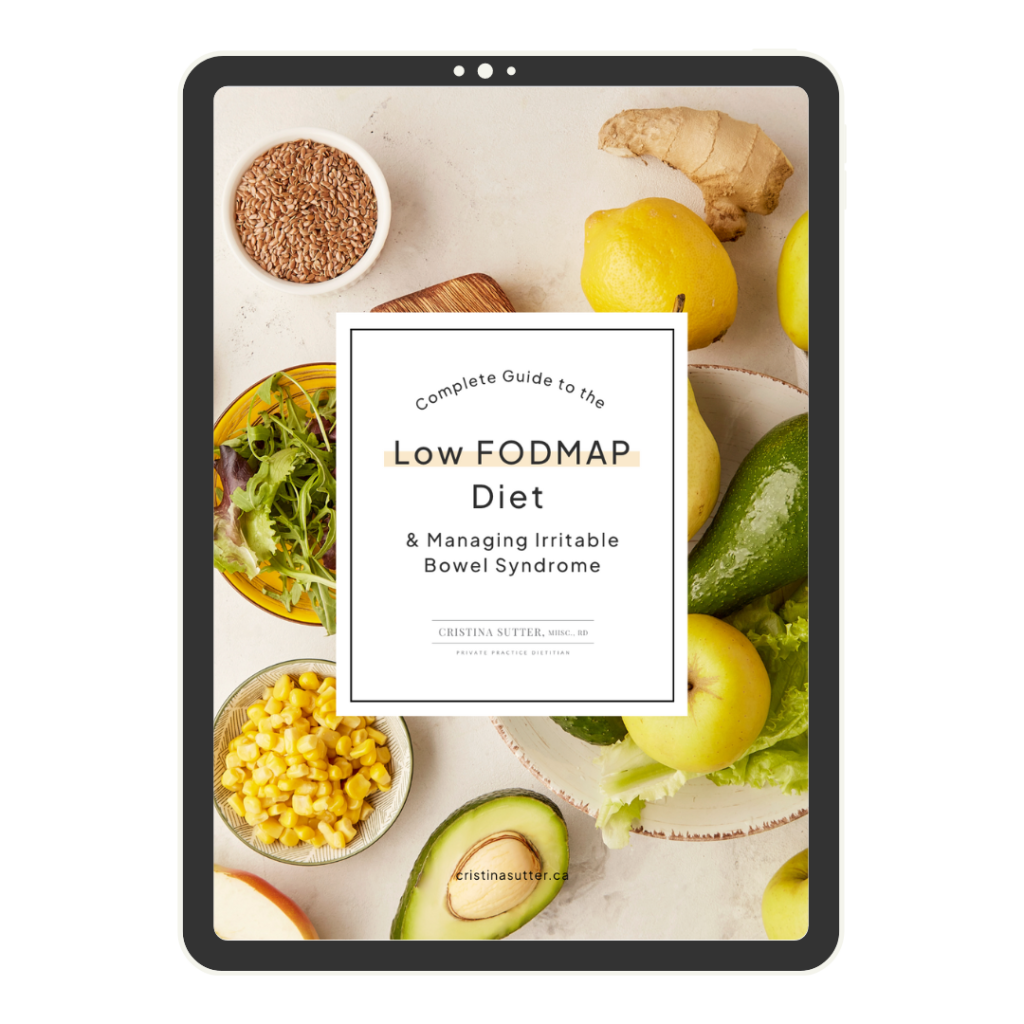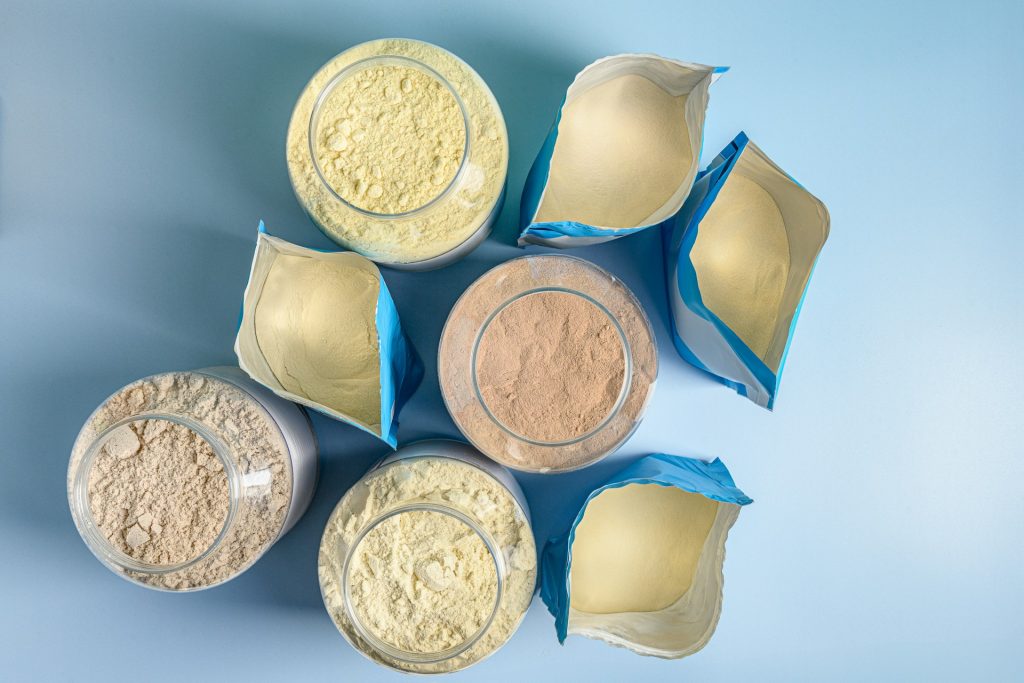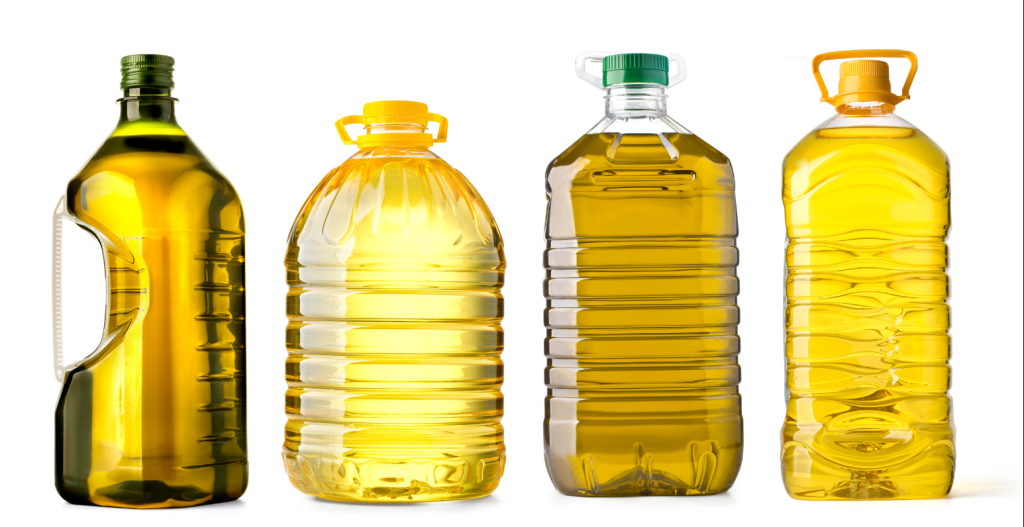Menopause can be a challenging time for many women, particularly when it comes to managing weight gain. Hormonal changes, lifestyle shifts, and age-related factors all contribute to fast weight gain during this transition. In this blog post, we will explore the causes of menopause weight gain and cover the evidence based top five diet and exercise strategies to fight menopause weight gain.
Weight gain speeds up during perimenopause, in fact most women gain 1-1.5 lbs of fat per year for a total gain of 5% of their body weight during the menopause transition, according to the Study of Women’s Health Across the Nation (SWAN). This equals a total weight gain of 6.5 lbs for a 130lb woman, or 8lbs for a 160lb woman. The SWAN study found that different ethnicities experience weight gain differently. Caucasian and African American women tend to gain 1-1.5 lb of fat per year, whereas Chinese and Japanese women do not experience a change in weight during the menopausal transition. Perhaps a small comfort is that we don’t tend to gain weight forever, our weight tends to plateau one year after menopause.
During the menopause transition, we gain body fat in our waist and lose muscle in our legs.
What Causes Weight Gain During the Menopause Transition?
Along with aging in general, hormone changes, less physical activity and different eating habits are the main factors that impact our weight gain during perimenopause. Our eating habits tend to change during the menopause transition: we tend to eat less fibre and protein and consume more fat from dairy and meat in middle age. These diet and exercise changes are predictive of weight gain.
Hormone changes.
The changes in hormone levels during perimenopause impact our muscle loss, metabolism and fat distribution. These hormone changes cause metabolic changes to how we process energy, store fat and burn muscle.
Less Exercise.
To be sure, women are tired and strained during the perimenopause years. Most women experience perimenopause symptoms including poor sleep, fatigue, cravings and hunger, low energy and mood and tendinopathies. Women are often the main support for aging parents, while raising teenagers and juggling a demanding career during this time. All of these stresses reduce the amount of available time, space and energy dedicated to exercise.
Women exercise less in perimenopause than they did in the 10 years before.
Less fibre and protein intake.
How much fibre you eat through perimenopause is the biggest dietary factor to impact weight gain and body fat. Yet our fibre intake seems to plummet around this time. Maybe because carbs and whole grains are out of fashion or we don’t have time to make salads and oatmeal.
The strongest predictor of weight gain during the menopause transition is your total fibre intake.
More saturated fat intake.
Studies have observed that women in middle age tend to eat more saturated fat and cholesterol, compared to in our 20s and 30s. Foods high in saturated fat and cholesterol include cheese, cream sauces, fried foods and red meat. Eating more saturated fat and cholesterol contributes to weight gain during middle age. Maybe we have more meat because we are feeding teenagers, or maybe we drink more coffee with cream while we juggle busy careers or maybe cheese is our easy go-to snack on the go.
Eating more butter, cheese, cream, and steak contribute to weight gain in middle age.
While some body composition changes may be inevitable, optimizing exercise and diet during the perimenopause years can help protect your muscles, metabolism and manage your weight. One popular method to lose weight is Intermittent Fasting (IF). To learn whether IF can help weight loss during perimenopause, read my blog post Is Intermittent Fasting Helpful for Women During Perimenopause?
Does Hormone Replacement Therapy (HRT) Impact Weight Gain?
HRT offers health benefits and symptom relief to women during perimenopause and some may wonder – can HRT help my weight, too? There is some evidence that women who take hormone replacement therapy (HRT) tend to gain less body fat, particularly around the waist. According to research published in the March 2018 issue of The Journal of Clinical Endocrinology & Metabolism, women who take HRT don’t gain as much body fat, especially around the abdomen.
Taking HRT won’t help you to lose weight, but it may help buffer the body comp changes that accompany perimenopause. Hormone therapy can also help you manage your weight by improving sleep, which improves stress and cortisol levels and makes it easier to exercise and eat well.
HRT may help to prevent abdominal fat gain during perimenopause.
For proven diet strategies that do help weight loss during perimenopause, try these top five ways to lose weight and burn fat during perimenopause.
Top Five Strategies to Fight Menopause Weight Gain
1. Maximize your fibre intake. Aim for 25-40g fibre per day.
Fibre is the non digestible parts of fruits, vegetables, legumes and whole grains that makes you stay regular, feel full and promotes a healthy gut microbiome.
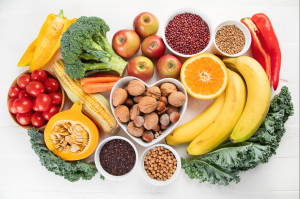 Ways to boost the fibre in your meals:
Ways to boost the fibre in your meals:
- Sprinkle chia seeds or bran buds on your yogurt
- Shred zucchini into pasta sauce
- Snack on baby carrots with lunch
- Make veggie or lentil soup
- Add beans to tacos
- Snack on a whole fruit
- Add a salad to dinners
- Blend frozen fruit into smoothies
- Use brown rice, instead of white
2. Include a serving of protein at each meal. Aim for 25-30g protein at each meal.
A serving of protein that packs 25 grams of protein includes: a chicken breast, half a block of tofu, 1 cup SKYR or Greek yogurt or cottage cheese, one can of tuna or 2 eggs plus 1 cup milk.
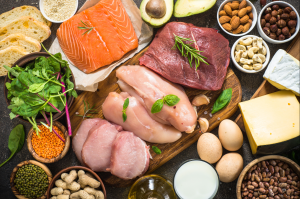
- Have SKYR or Greek yogurt with breakfast
- Add cottage cheese to a snack
- Try eggs boiled, scrambled, egg bites or frittata
- Make a smoothie or protein shake
- Serve a can of tuna with a salad
- Snack on edamame
- Use ultrafiltered milk or soy milk instead of almond milk
- Shred rotisserie chicken into soup
- Add bone broth to rice, instead of water
- Crumble tofu onto pizza
For more on how much protein we need during menopause, read How Much Protein Do You Need During Menopause and Training How Much Protein Do We Need. To learn about protein timing around training, check out When Should We Eat Protein.
3. Exercise Smarter, not Longer.

- Build muscle with weight training 2-3 days a week, work up to heavier weights and lower reps.
- Do High-Intensity Interval Training (HIIT) 2 days a week to burn fat. Long hikes or long slow jogs are not helpful for burning fat.
- Try to avoid having any days where you are sitting all day. Instead, keep a moderate activity level consistent across all days. For example, you can walk for at least 30 minutes on your inactive days.
4. Limit animal fat like butter, cream, red meat, cheese, and ice cream.
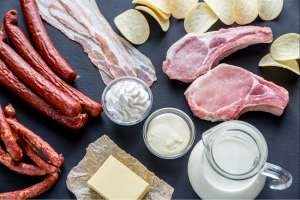
- Reach for avocado instead of cheese
- Use milk instead of cream
- Blend a frozen banana instead of having ice cream
- Use margarine instead of butter
- Cook with avocado oil
- Choose leanest cuts of meat e.g. tenderloin, sirloin, chicken breast, extra lean ground beef, ground turkey
5. Limit alcohol to two drinks per week. Drinking higher amounts of alcohol can raise blood pressure both temporarily and over time.

Explore non-alcoholic drinks like:
- Kombucha
- Muddled berries in iced sparkling water
- Virgin mojito
- Lime-flavored soda stream
While menopause may bring unique challenges, there are many ways to maintain a healthy weight and feel your best. With the right diet, exercise, and lifestyle changes, you can navigate this phase confidently. Work with our team to design a personalized meal plan to help you meet and maintain your weight loss and fitness goals. Book your consultation with a dietitian now.
FAQ:
Why am I gaining weight so fast in menopause?
Weight gain is fast during perimenopause because hormone changes during perimenopause impact metabolism, hunger, mood and sleep. Along with aging in general, less physical activity and eating less fibre are the three main factors that impact our weight gain during perimenopause.
Does menopause cause permanent weight gain?
Women gain body fat in the midsection during perimenopause. It can be very difficult to lose weight and body fat during menopause and the strategies to lose weight are different at this stage. Weight gain in the form of body fat stops one year after menopause, the point in time 12months after the last period.
How can I prevent menopause belly fat?
Doing high intensity interval training (HIIT), strength training and reducing calorie intake by 300calories per day, are evidence based strategies that help with losing body fat and weight during the menopausal transition.
Is HRT necessary for weight management during menopause?
Hormone Replacement Therapy (HRT) may help to prevent abdominal fat gain during perimenopause. Taking HRT won’t help you to lose weight, but it may help buffer the body comp changes that accompany perimenopause. Hormone therapy can also help you manage your weight by improving sleep, which improves stress and cortisol levels and makes it easier to exercise and eat well.
How to get rid of menopause belly?
Doing high intensity interval training (HIIT), Sprint Interval Training (SIT), intermittent fasting, eating a high fibre diet and reducing calorie intake by 300 calories per day, are evidence based strategies to lose body weight and burn fat during the menopausal transition.
What is the fastest way to lose weight during menopause?
Doing high intensity interval training (HIIT), Sprint Interval Training (SIT), intermittent fasting, eating a high fibre diet and reducing calorie intake by 300 calories per day, are evidence based strategies to lose body weight and burn fat during the menopausal transition.
What is the average weight gain during menopause?
Most women gain about 5 pounds of weight and 10% body fat over the menopause transition, according to the Study of Women’s Health Across the Nation (SWAN). Caucasian and African American women tend to gain 1-1.5 lb of fat per year for a total gain of 5% of their body weight during the menopause transition, which can be 6.5 lbs for a 130lb woman or 8lbs for a 160lb woman. Chinese and Japanese women do not experience a similar change in weight during the menopausal transition. Perhaps a small comfort is that we don’t tend to gain weight forever, our weight tends to plateau one year after menopause.


